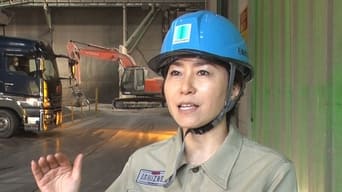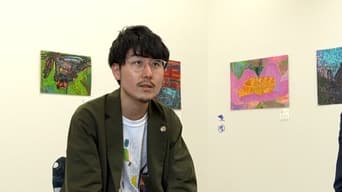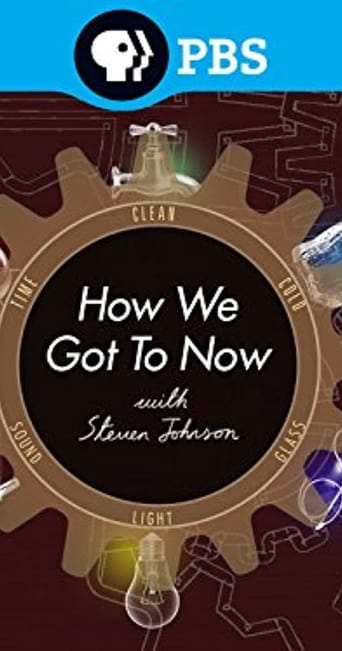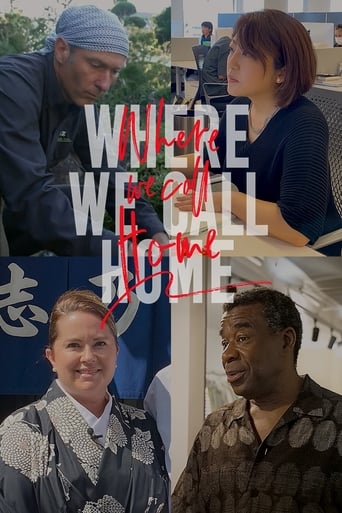RISING Season 7
With 30 Day Free Trial!
RISING
2015
Going beyond the horizon. Meet Japan's entrepreneurs whose innovative thinking is changing traditional mindsets in their various fields of work.
Watch Trailer
RISING Season 7 Full Episode Guide
The pandemic has caused widespread disruption to medical practice, including hindering surgical training by preventing in-person coaching. And with ethical and economic issues surrounding the dissection of live animals and human cadavers, Takayama Seiichiro turned instead to developing realistic, sustainable anatomical models -- including arteries, organs and mucus membranes -- using a popular Japanese foodstuff: taro root-based Konnyaku jelly.
Taira Yuiko runs a firm promoting home composting as a sustainable solution to the large quantities of organic kitchen waste generated by most households. In just 2 years, her service providing stylish composting kits that keep unwanted bugs and odors in check and are compact enough even for urban apartments has grown its user base to over 20,000, and attracted interest from around the world. The firm also collects the resulting fertilizer for use promoting local agriculture and food cycles.
Industrial waste processing firm CEO Ishizaka Noriko is changing the image of her sector. Transforming waste into resources with an industry-leading recycle rate of over 98% has made her an opinion leader in the march towards a circular economy. She's also embracing digital transformation through the introduction of waste-sorting robots and IT solutions, and the green revolution, with a woodland regeneration initiative that has transformed a former wasteland into an oasis for the general public.
Orihime, a desktop avatar robot created by Yoshifuji Ory based on his own experiences of long-term school absenteeism, lets those excluded from society by illness or disability communicate remotely. During the global pandemic, Orihime was also picked up as a proxy communication tool by businesses and local governments, and Yoshifuji has even developed a 1.2m mobile version which one Tokyo café is using to allow house- and bedbound individuals across Japan to work as remote serving staff.
Based in Toyama Prefecture, on the Sea of Japan coast, Noguchi Tomohisa runs a unique business making sustainable leather from fish skin, a major waste product of the region's active fisheries. After a three-year development process working to ensure the material's strength and eliminate fishy odors, the firm's fish leather wallets and card cases are now stocked by high-end stores in Tokyo, and their attractive sheen is a welcome replacement for unsustainable exotic animal skins.
In a big year for parasports in Tokyo, we follow 3 technicians whose expertise aids the performance of competitors from around the world. Wheelchair engineer Ozawa Toru calibrates his devices to match athletes' requirements to the nearest gram and millimeter. MIT alumnus Endo Ken creates prosthetic blades both to suit the needs of top competitors and ease hurdles to access for parasports beginners. And Hamada Atsushi pioneers novel blade designs to maximize the performance of para-athletes.
Painting and decorating is an industry that has long been dominated by men. But Takenobe Yukio, CEO of an Osaka-based construction painting firm founded in 1950, is solving the issue of an aging, shrinking workforce by proactively recruiting female staff. Trained using innovative digital platforms, his team including tradeswoman Ishimoto Nozomi leverages a creative female sensibility to tackle projects such as schools and the traditionally built temples of historic Kyoto Prefecture.
Since 2018, twins Matsuda Takaya and Fumito have run a social business built around the unique artistic talents of individuals with learning disabilities. In partnership with facilities across Japan, besides organizing award-winning exhibitions, they license artists' work for use in stylish products including garments and accessories, as well as design tie-ups with craft beer brands and on hotel décor, with profits providing vital income for the artists themselves.
Taniguchi Hisashi is CEO of a mobility services company that is tackling the pandemic through self-driving technology that facilitates social distancing. From automated trolley systems for mail-order warehouses experiencing a surge in orders, to robots that patrol and disinfect indoor facilities, and self-driving scooters aimed at mobility-impaired seniors, Taniguchi's aim is a society that leverages robots in every facet of our lifestyles.
Kuji Kosuke heads an Iwate Prefecture's sake brewery with 119 years of history. Through an approach that melds tradition with the French "terroir" philosophy, using mountain spring water and rice varieties suited to the local environment, his beverages have won prizes in Japan and overseas. But with demand for sake falling due to the pandemic, he responded with "Japanese spirit," turning his surplus rice crop to more storable gin made with local botanicals, and vodka filtered with Iwate charcoal.
Food waste is a global issue. And fresh fruit -- easily bruised; rejected for minor deviations in size, shape and color; and prone to price dips due to bumper crops -- is among the most widely discarded items. Kinoshita Masayuki set out to solve this with tailored flash freezing technology that maintains the taste and texture of cut fruit without the need for conventional preservatives. And now his approach is even helping pandemic-hit restaurants deliver their dishes with no loss in quality.
With human interaction restricted by the pandemic, robotic communication aids are in the spotlight. Aoki Shunsuke heads a firm that develops such devices, with user-friendly messenger robots aimed at children and seniors uncomfortable with smartphones; home sensors that pair with the robots to let you monitor the wellbeing of isolated relatives; and robotics kits that help kids learn while expressing their creativity. Follow a unique business developing innovative solutions for the new normal.
Around the world, the chaos caused by the COVID-19 pandemic has brought calls for a green recovery focused on eco-friendly businesses and renewable energy. Yoshida Hiroko runs an NPO promoting green energy and sustainable food production in rural Japan. By creating virtuous cycles, and organizing events that attract participants from further afield, she leverages local natural resources to revitalize mountain areas hit by depopulation.
Free Trial Channels
Seasons

















































